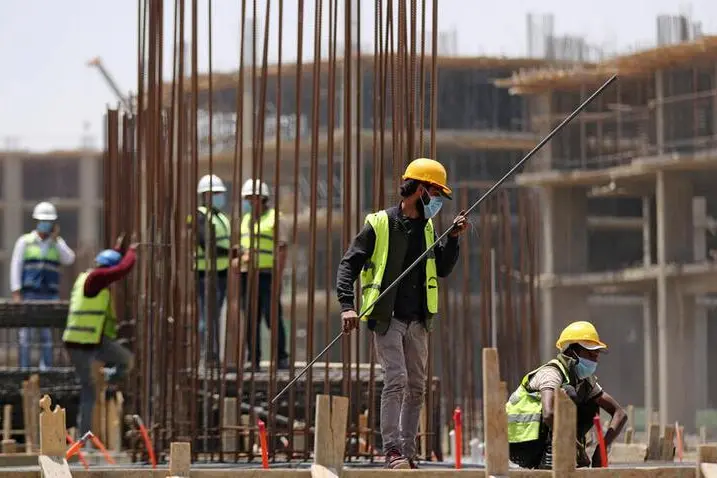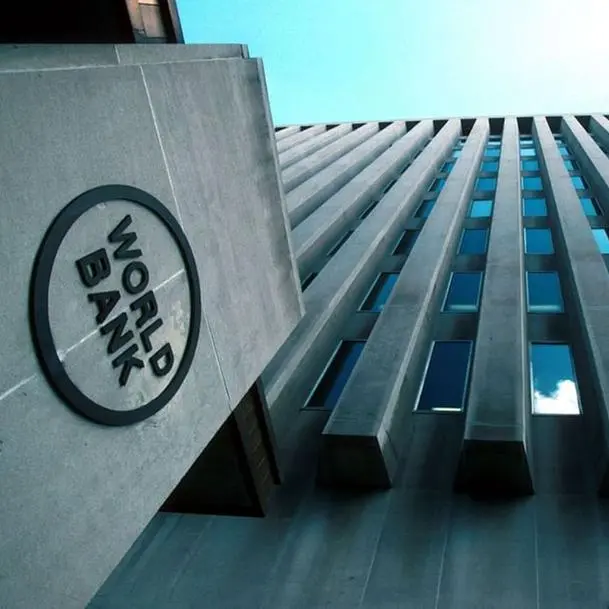PHOTO
Egypt’s construction sector is set for a multiyear boom despite inflation and the depreciating currency, industry experts said.
“The construction sector boom will continue for not less than 10-15 years,” said Marwan Farid, Strategic Planning & Business Development Director, DMC – CURVE Landscape while speaking at an event organised by Ventures Onsite.
“The Egyptian construction industry is expected to grow 12.3 percent to reach 472 billion Egyptian pounds ($23.98billion) this year with expectations to reach 620.9 billion pounds ($31.55 billion) by 2026,” said Phillip Higgins, Director of Sales Lead Management, Ventures Onsite.
The construction sector recovery is driven by heavy investments in the residential and infrastructure sectors and industrial zones, he said adding that increased private investment and the adoption of public private partnership (PPP) financing frameworks will further drive the momentum.
“The Egyptian government announced plans to implement 45 major national and strategic infrastructure projects in the coming financial year including 10 traverse accesses on the Nile, completion of 1,000 kilometres of railway development and 47 new train stations,” Higgins said.
Commenting on other growth drivers, Mohamed Maarouf El-Khouly, Senior Director - Commercial, Business Development and Supporting Sectors, Sabbour Consulting added: “Egypt will adopt a new general health insurance system which has been tested in two new cities – Port Said and Luxor. This will have a very strong impact on the Egyptian healthcare market and will add a lot of clinics and hospitals”.
Inflation and currency impact
Commenting on inflation and currency devaluation, El-Khouly said, “About 70-80 percent of key market players were able to cope up with the pace of construction despite the inflation and currency challenges. This helped filter the market as only stable, reputable, and capable companies can sustain such challenges.”
To combat the negative impact of currency devaluation on pricing and imports of raw materials, Farid said the firm is trying to increase local sourcing component while bidding for tenders. This could further increase local manufacturing of construction materials within Egypt, he said.
The Egyptian central bank had, in February, mandated firms to use Letters of Credit for raw material imports as a measure to stem the impact of currency devaluation and encourage import substitution. Industry players feared such restrictions could cause supply chain disruptions and import delays.
Both Farid and El-Khouly agreed the issue was being taken up by the government and both positively see it being resolved in 3-6 months. “The government is funneling down the number of restricted products and could grant exemptions to products that have no local substitute,” said Farid.
Commenting on the affordable housing segment, he said the increase in real estate selling prices are not keeping pace with the inflation.
“About 300,000 units will come up in the next two years in the affordable housing segment and developers are trying to minimise the impact of inflation on their pricing. The selling price would have increased on an average by around 14,000- 15,000 pounds or around 15 percent but the inflation is far more than this.”
(1 USD = 19.68 Egyptian pounds)
(Reporting by Sowmya Sundar; Editing by Anoop Menon)





















